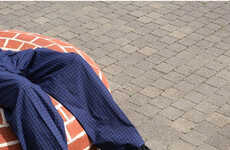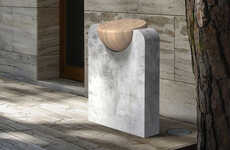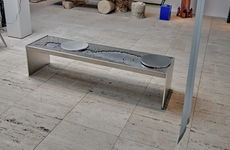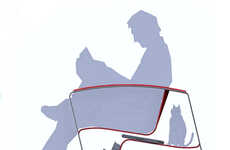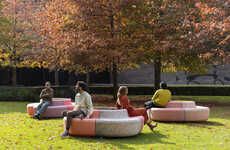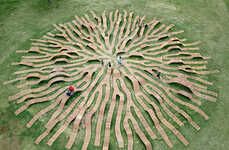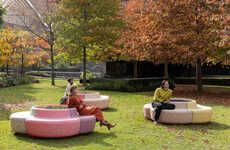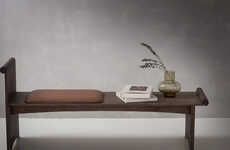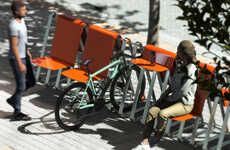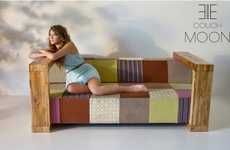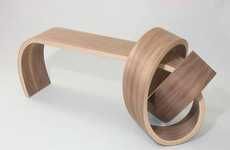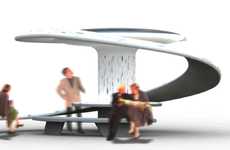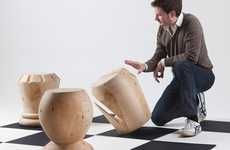
The Jeppe Hein Inverted Seat is Intentionally Upside Down
Sarah Moore — June 13, 2012 — Art & Design
References: jeppehein.net & coolhunting
While you may feel the need to flip the Jeppe Hein inverted seat around given that it appears to be toppled over, it was, in fact, intentionally designed to look like it is upside down.
The designer is known for his unusual and creative public seating arrangements and this latest creation is no exception. The danish creator made the bench to act as a discussion-fostering piece of furniture that questions societal norms.
Due to its Topsy-turvy aesthetic, the bench demands attention and forces anyone who either sits on it or walks by it to become more engaged with their surroundings. Whether or not this odd piece of furniture would actually be comfortable or not is debatable, but it will certainly prompt passersby to ask those around them if the bench was meant to be upside down or not.
The designer is known for his unusual and creative public seating arrangements and this latest creation is no exception. The danish creator made the bench to act as a discussion-fostering piece of furniture that questions societal norms.
Due to its Topsy-turvy aesthetic, the bench demands attention and forces anyone who either sits on it or walks by it to become more engaged with their surroundings. Whether or not this odd piece of furniture would actually be comfortable or not is debatable, but it will certainly prompt passersby to ask those around them if the bench was meant to be upside down or not.
Trend Themes
1. Inverted Furniture - Designing furniture that challenges the traditional orientation to spark conversation and engagement.
2. Disruptive Public Seating - Creating unconventional public seating arrangements that encourage people to think outside the box.
3. Interactive Design - Developing interactive designs that prompt people to engage with their surroundings in new ways.
Industry Implications
1. Furniture Manufacturing - Incorporating unconventional designs and orientations into traditional furniture manufacturing for increased social engagement and aesthetic appeal.
2. Public Space Planning - Providing unique seating options for public spaces to encourage conversation and community building.
3. Art Installation - Integrating interactive and unconventional designs into art installations for increased public engagement and conversation.
0.9
Score
Popularity
Activity
Freshness


